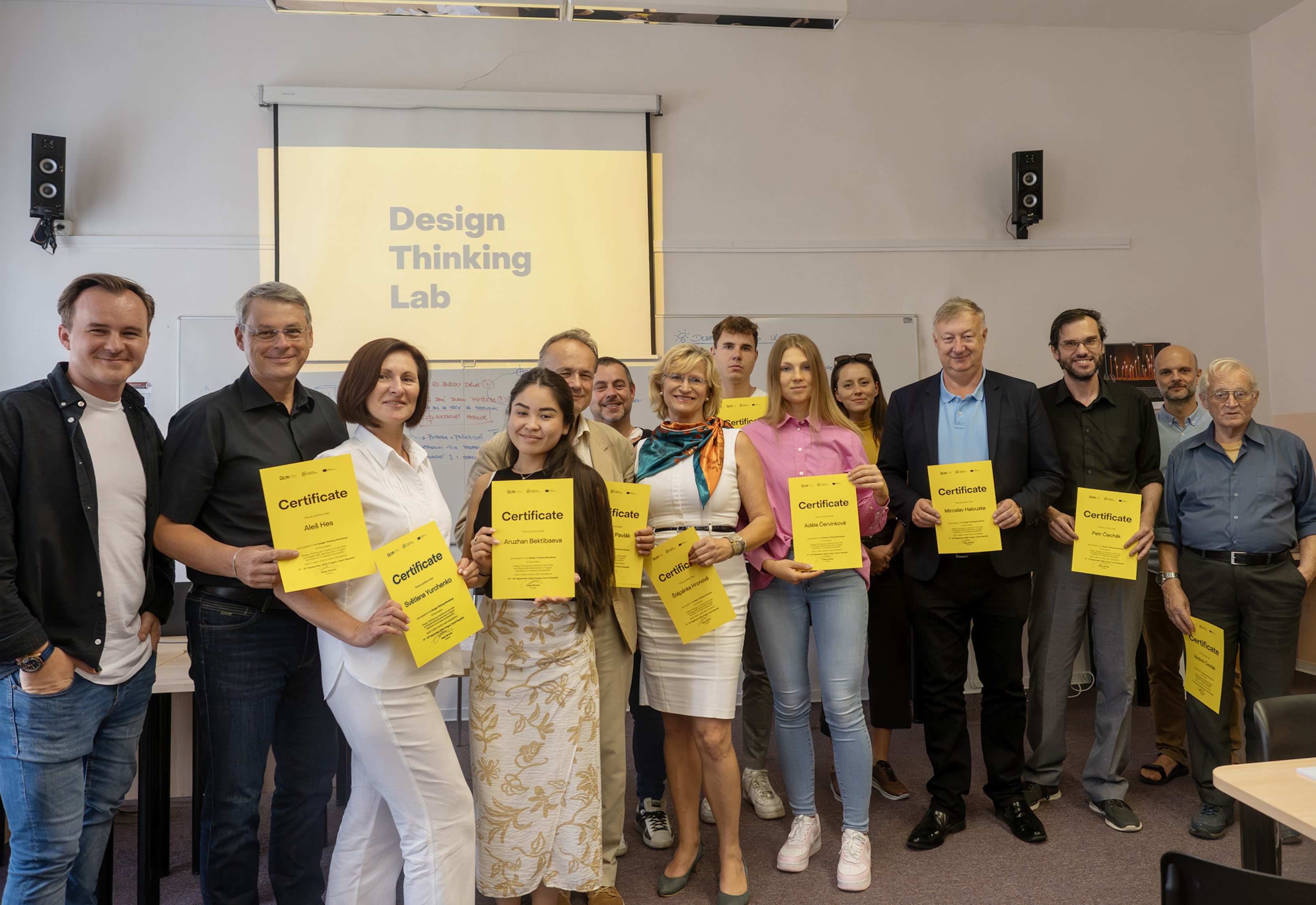On September 9th and 10th, 2024, another course focused on Design Thinking was held at the University of Finance and Administration (VŠFS) in Prague, led by Adam Brocka. Compared to the workshops in Pamplona and Trnava, this one was noticeably more philosophical, yet just as inspiring for both the participants and the organizers.
Day One – Creativity in Practice
Similar to the previous courses, this one was also divided into two days. On the first day, participants focused on the task ‘Design a better classroom,’ with an emphasis on the practical part – specifically identifying the real problem and applying creativity in designing possible solutions. Participants were tasked with exploring all aspects of the learning environment, from design to the interaction between students and teachers. The popular activity of folding a paper airplane in pairs, where both participants had to use their less dominant hand (usually the left), was also included. For some, the challenge was simply remembering how a paper airplane looks and how to fold it. However, most of the airplanes managed to fly at least 2 meters, adding a fun and relaxed tone to the exercise.
Discussions and Discovering Connections
One of the prominent characteristics of the Prague workshop was the rich discussion, reflecting both the participants’ ability to passionately debate practically anything, as well as their academic need for precision in expression and setting boundaries. During the task ‘Design a better classroom,’ participants did not rush to propose solutions but first addressed the perspective from which they should approach the assignment. They felt the need to define the concept of creativity, which they encountered repeatedly throughout the workshop. This need to discuss and think aloud significantly influenced the entire course of the workshop, which, unlike previous ones, devoted much more time to discussions – something the participants appreciated in their final evaluations.
Day Two – Theory and Questions That Lead to Solutions
On the second day, participants began by theoretically grounding the experiences from the first day and then repeated the entire process with another assignment, which helped them better understand the individual phases of the Design Thinking process. An unexpected highlight of the second day was a discussion about the benefits, efficiency, and overall impact of artificial intelligence on everyday life and the abilities of the human species. Participants reflected on questions such as: What are the savings when using AI? What will we do with the extra free time? What will our needs be? The age diversity of the participants became very apparent in the discussion, revealing multiple perspectives.
This deep dive into the essence of the questions and assignments significantly influenced the overall course of the workshop. Peter Čechák, one of the participants, realized that ‘we often don’t ask the right questions,’ and admitted that ‘we need to think more about whether they lead us where they should; whether we formulate them in a way that encourages answers that will help us move forward in solving the problem.‘ Svetlana, a marketing student, discovered that the key to effectively solving problems lies in properly formulating the challenge and focusing on the verb. ‘When I focus more on the verb, it directs me much more toward the core of the real problem,’ she explained her insight. These observations contributed to participants adopting new approaches while deepening their analytical skills, allowing them to better identify key questions and formulate more precise assignments.
Overall Evaluation and Conclusion
The course in Prague was the third in a series of Design Thinking workshops that continue to enhance soft and digital skills in higher education. Aleš Hes from the Department of Economics and Management, a co-organizer of the course and a project partner, evaluated the entire event very positively: ‘This workshop demonstrated that Design Thinking can appeal to a wide range of people, regardless of age or professional background. The discussions were enriching and contributed to creating a truly inspiring environment that fostered innovative thinking and collaboration.'”
The course was one of the outputs of the international project 2022-1-SK01-KA220-HED-000089101: Design Thinking as a method of soft skills and digital skills development in higher education to increase employability, which supports the development of soft and digital skills in higher education. The final course in the Design Thinking series awaits us in June 2025 at the Business & Technology University in Georgia.











